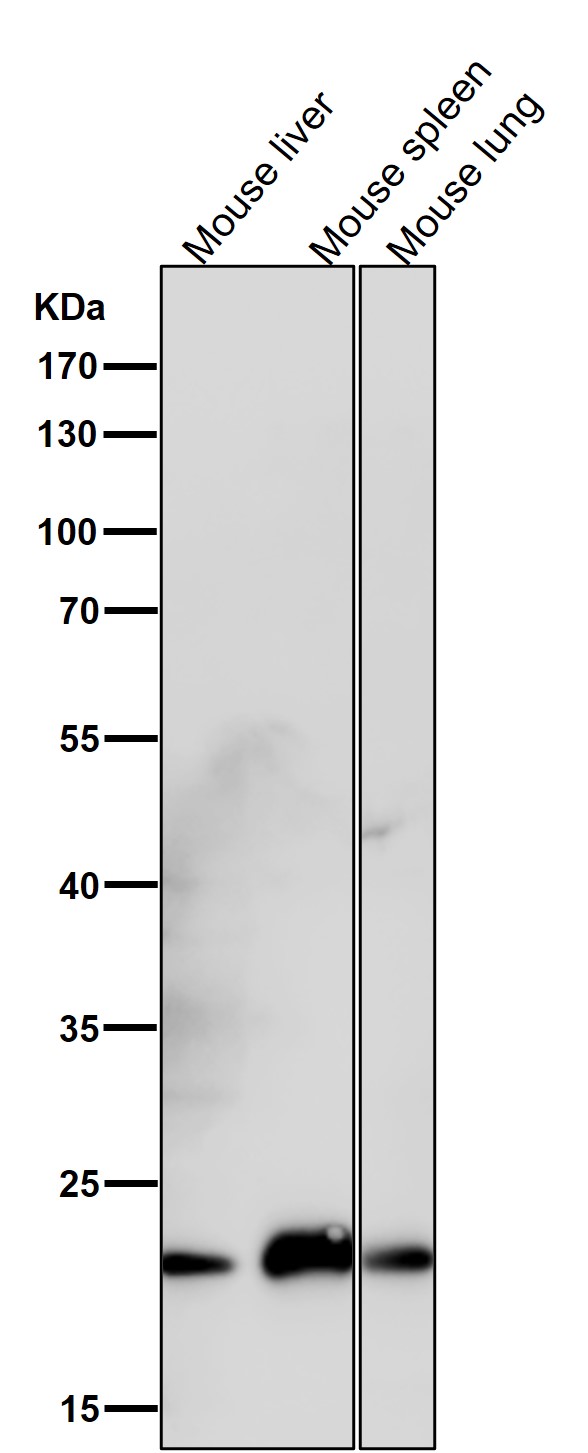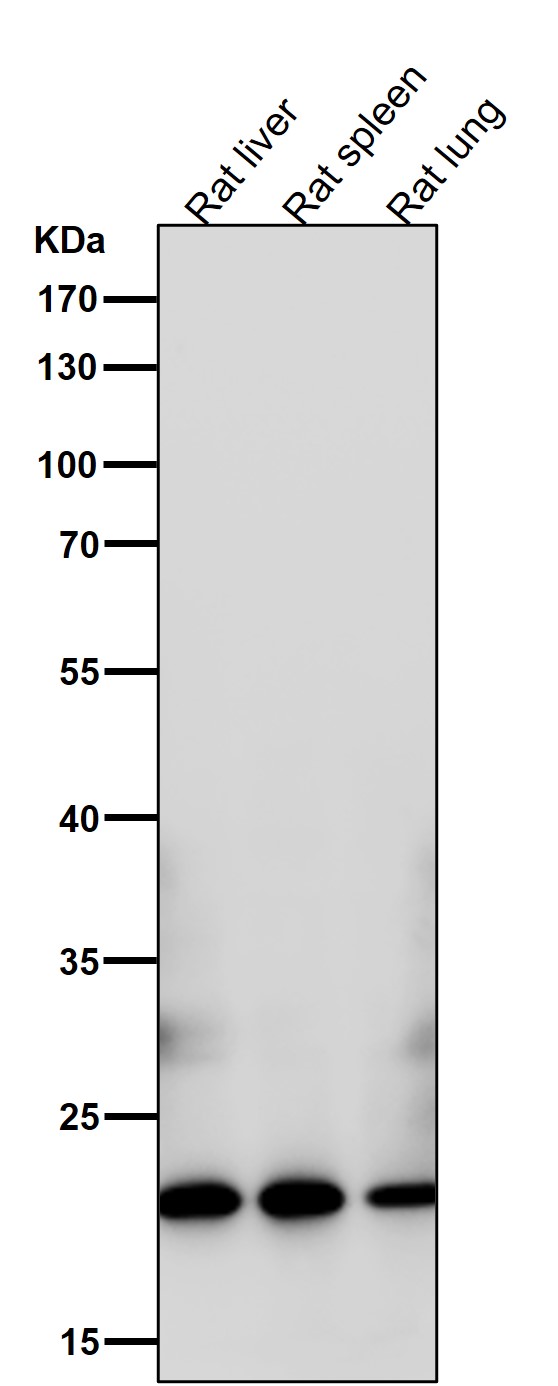


| WB | 1/1000-1/2000 | Human,Mouse,Rat |
| IF | 咨询技术 | Human,Mouse,Rat |
| IHC | 咨询技术 | Human,Mouse,Rat |
| ICC | 1/50-1/200 | Human,Mouse,Rat |
| FCM | 1/20-1/100 | Human,Mouse,Rat |
| Elisa | 咨询技术 | Human,Mouse,Rat |
| Aliases | AILIM; CD278; CRP1; CVID1; ICOS;;ICOS |
| WB Predicted band size | Calculated MW: 23 kDa ; Observed MW: 22 kDa |
| Host/Isotype | Rabbit IgG |
| Antibody Type | Primary antibody |
| Storage | Store at 4°C short term. Aliquot and store at -20°C long term. Avoid freeze/thaw cycles. |
| Species Reactivity | Human,Mouse,Rat |
| Immunogen | A synthesized peptide derived from human ICOS |
| Formulation | Purified antibody in PBS with 0.05% sodium azide,0.05% BSA and 50% glycerol. |
+ +
以下是关于ICOS抗体的3篇代表性文献及其简要摘要:
---
1. **文献名称**:*ICOS is an inducible T-cell co-stimulator structurally and functionally related to CD28*
**作者**:Hutloff A. et al.
**摘要**:该研究首次描述了ICOS的分子特征及其在T细胞共刺激中的作用,发现ICOS抗体可调控T细胞活化和细胞因子分泌,为后续免疫治疗研究奠定基础。
---
2. **文献名称**:*Agonist anti-human ICOS monoclonal antibody induces antitumor tumor immunity through reorientation of intratumoral regulatory T cells*
**作者**:Fan X. et al.
**摘要**:通过小鼠模型证明,激动型ICOS抗体可通过重编程肿瘤微环境中的调节性T细胞(Tregs),增强抗肿瘤免疫应答,提示其在癌症免疫治疗中的潜力。
---
3. **文献名称**:*Structure-guided engineering of the affinity and specificity of CARs against T cell ICOS protein*
**作者**:Watanabe N. et al.
**摘要**:利用结构生物学方法解析ICOS-抗体结合机制,并设计出高亲和力的嵌合抗原受体(CAR),为开发靶向ICOS的细胞疗法提供新策略。
---
4. **文献名称**:*Targeting ICOS in autoimmune diseases: Preclinical and clinical advances*
**作者**:Becker J.C. et al.
**摘要**:综述ICOS抗体在类风湿性关节炎等自身免疫病中的治疗潜力,总结临床前及早期临床试验数据,探讨其安全性和调节免疫平衡的机制。
---
以上文献涵盖基础机制、肿瘤免疫及自身免疫病应用,反映了ICOS抗体的多方向研究进展。
The Inducible T-cell CO-Stimulator (ICOS), a CD28 family receptor expressed primarily on activated T cells, plays a critical role in adaptive immunity. Discovered in 1999. ICOS binds to its ligand ICOSL (B7-H2) on antigen-presenting cells and certain tumor cells. Unlike CD28. ICOS is not constitutively expressed but induced during T-cell activation, enhancing survival, cytokine production (e.g., IL-10. IL-21), and metabolic reprogramming. It is particularly vital for follicular helper T (Tfh) cell differentiation, germinal center formation, and regulatory T (Treg) cell function, bridging innate and adaptive immune responses.
In cancer immunotherapy, ICOS agonists (e.g., JTX-2014) are explored to amplify anti-tumor T-cell responses by promoting effector T-cell activation and depleting immunosuppressive intratumoral Tregs. Conversely, ICOS antagonists may mitigate autoimmune diseases by suppressing pathogenic Tfh or Th17 cells. ICOS expression also serves as a predictive biomarker for checkpoint inhibitor efficacy, as its upregulation correlates with improved clinical outcomes in PD-1/PD-L1 blockade therapies. However, its dual role in immune activation and suppression necessitates context-specific therapeutic strategies. Current research focuses on optimizing ICOS-targeting biologics and combination therapies to balance anti-tumor activity with autoimmune toxicity risks.
×